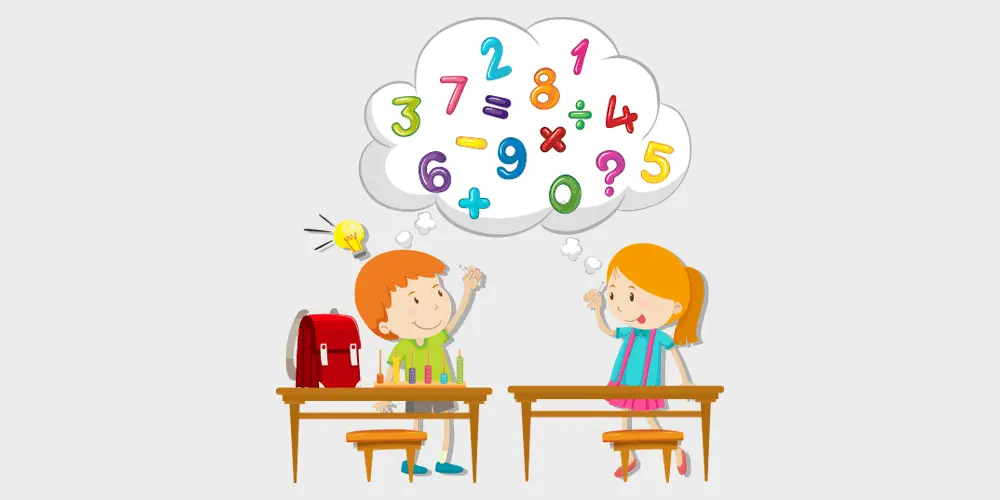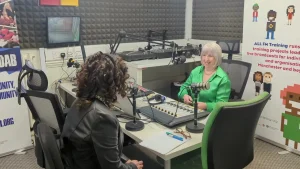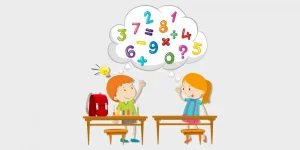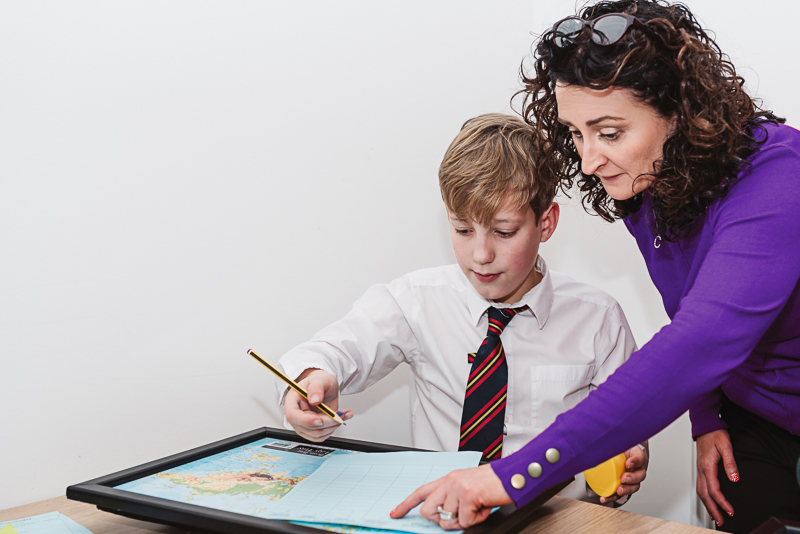It’s that familiar feeling of dread in your stomach. Maths next.
I remember being a secondary school student myself, and absolutely dreading maths. I was fine in primary school, but something changed almost as soon as I hit Year 7. A lack of confidence to ask for help, being placed in a lower set, trying to navigate a new school environment, and all the challenges that come with it certainly didn’t help. Looking back, I don’t think I truly started to feel confident in maths until I joined the workforce and started applying it in real-life situations.
The Impact of Maths Anxiety: Insights from Teachers
A recent government report into the underperformance of children in maths sheds light on what many of us already know: maths anxiety is a huge barrier to learning.
The findings were both revealing and, to many of us, unsurprising:
- Maths anxiety is cited as the biggest obstacle to learning by the majority of teachers.
- Half of teachers believe girls progress more slowly than boys because they are too anxious about making mistakes.
- Lack of confidence, lack of support at home, and the perceived irrelevance of maths also play a role in students’ struggles.
- Almost three-quarters of teachers find it difficult to cover the maths curriculum in the time allotted.
- Two to one, teachers agree that early assessment is important to identify strengths and areas for improvement in maths.
Gender Differences in Maths Confidence
Previous studies have highlighted that girls often face different challenges when it comes to maths. Teachers in our survey agreed that many girls’ preconceptions about the subject and their lack of confidence could be holding them back.
Half of the teachers surveyed (50%) believe girls make slower progress in maths because they work more cautiously to avoid mistakes. Just 5% of teachers feel the same way about boys, with 39% seeing this as an issue for both genders.
Teachers attribute girls’ lower confidence in maths to several factors:
- Prejudices and stereotypes about the subject (50%)
- Differing parental expectations (31%)
- Learning approaches that better suit other subjects (25%)
- Peer disapproval (22%)
Maths anxiety, again, is identified as the key barrier to learning, with the majority of teachers pointing to this as the biggest hurdle. Only a small percentage of teachers (17%) identified the content of the maths curriculum as a problem, and just 13% noted differing expectations from teachers.
Recent research from Renaissance and the Education Policy Institute further suggests that the pandemic has disproportionately affected girls’ maths attainment, especially at the primary level. Teachers noted several reasons for this, including:
- Greater anxiety and stress levels among girls (44%)
- Less confidence in their maths abilities (37%)
- Less parental support compared to other subjects (37%)
- Gaps in foundational skills due to disrupted learning (35%)
Other factors include:
- The increased impact of social isolation on girls (21%)
- More screen time (20%)
- Fewer opportunities for collaborative problem-solving (19%)
- Increased household responsibilities for girls during lockdowns (18%)
Barriers to Learning
For both girls and boys, the main obstacles to learning maths are maths anxiety (59%), a lack of support at home (52%), and insufficient support in the classroom (34%).
Many students also struggle with the content and structure of the maths curriculum. One secondary student shared: “I don’t enjoy it very much. I find it quite daunting and confusing. There’s so much of it, and it feels so complicated.” Teachers shared similar concerns:
- 26% said there’s simply too much content
- 16% believe it lacks relevance
- 11% feel it isn’t personalized enough.
Additional barriers include undiagnosed dyscalculia (16%) and a lack of specialist maths support in schools (11%). Only 3% of teachers identified a lack of access to technology as a significant barrier.
What Can You Do to Help Your Child?
If your child is struggling with maths anxiety, here are some ways you can help boost their confidence:
- Be a positive role model: Avoid saying things like “I’m bad at maths too” and instead say, “Okay, this looks tricky, but let’s give it a go together.”
- Make maths relevant: Point out how they’re using maths in everyday contexts. Whether it’s measuring ingredients or calculating time, they’re already applying maths in the real world!
- Talk to their teacher: Share your child’s struggles and anxieties about maths so the teacher can offer the appropriate support.
- Consider tutoring: While this shouldn’t be a permanent solution, a tutor can help your child build their confidence and address any knowledge gaps in a low-pressure environment.
With the right support, we can help reduce maths anxiety and ensure all children have the tools they need to succeed. After all, maths isn’t just about numbers—it’s about confidence, problem-solving, and a mindset that anything can be figured out with a little patience and perseverance.
Does your child need extra help with maths? Explore our available classes and offerings on our website. If you can’t see something which fits in with what you want, drop us a line and we’ll be happy to look at alternatives for you!
Sources
- Renaissance and EPI report, March 2024
- National Numeracy survey, May 2021
- Restorative Practice – Access research and resources to help accelerate learning recovery
- Number Confidence: the gender divide, National Numeracy, July 2023; Girls are more afraid of mathematics than boys in 80% of countries, Glasgow University, 2016






